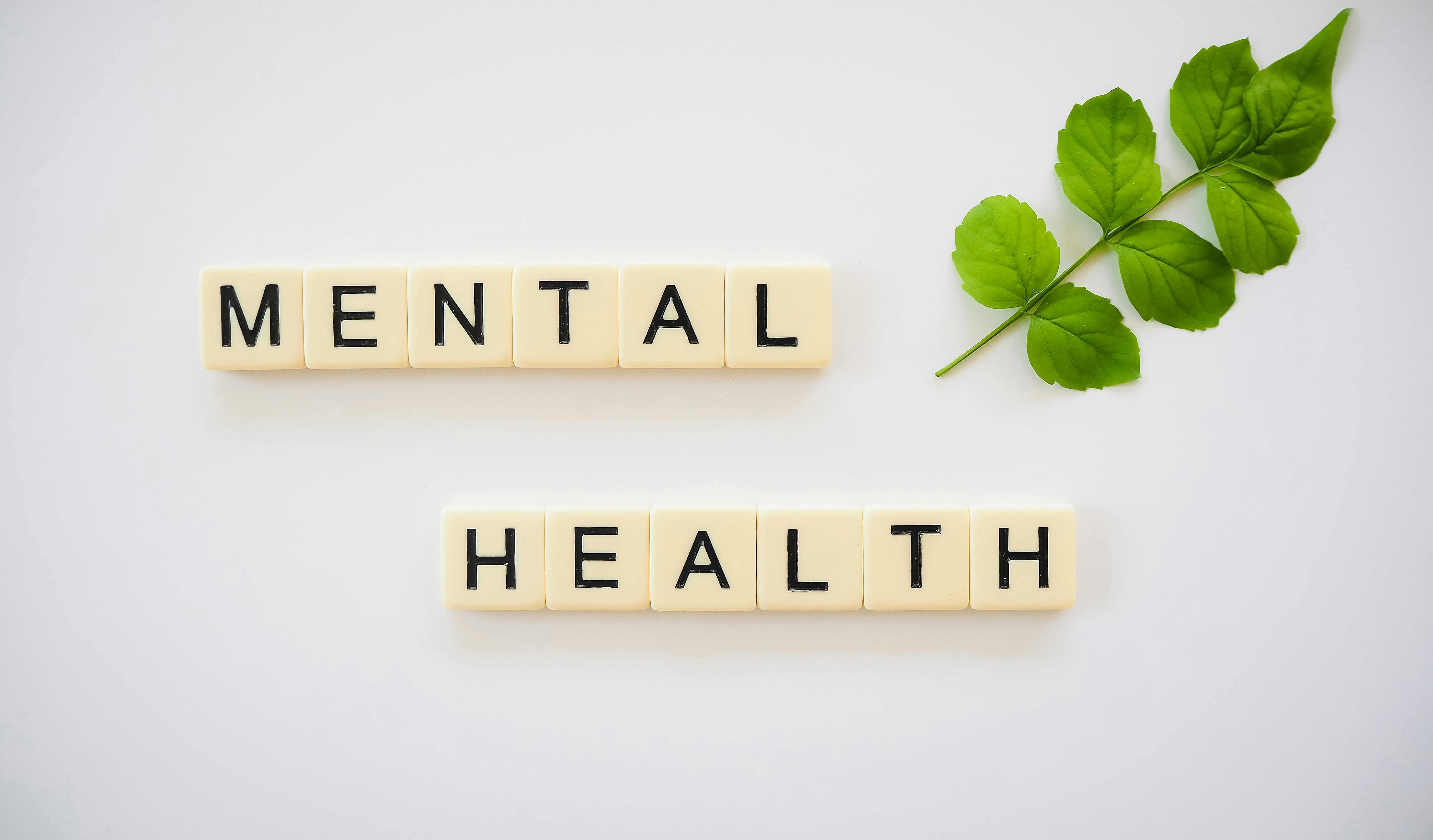🛡 Powerful Protection Spells That Shield From Harm
Safeguard yourself, loved ones, and your home from negative energy and spiritual threats with effective, trusted protection spells.
Introduction to the Gut-Brain Connection
The gut-brain axis is a complex communication network linking the gastrointestinal system and the central nervous system. This intricate relationship facilitates bidirectional communication between the gut and the brain, allowing for both systems to influence one another’s functionality. The gut is often referred to as the “second brain” due to its vast network of neurons, which form an enteric nervous system (ENS). This system operates independently yet remains closely intertwined with the brain, enabling a constant flow of information that impacts mood, behavior, and cognitive functions.
Research shows that the gut houses trillions of microorganisms, collectively known as the gut microbiota, which play a pivotal role in this connection. These microorganisms produce various neurotransmitters and other bioactive compounds that can affect brain function and emotional well-being. For instance, about 90% of serotonin, a crucial neurotransmitter linked to mood regulation, is produced in the gut. This statistic highlights the significance of maintaining a healthy gut microbiome for optimal mental health.
The gut-brain connection is essential not only for mental health but also for overall well-being. Disruptions in this axis, such as those caused by an imbalanced diet, stress, or illness, can lead to various health issues, including anxiety, depression, and gastrointestinal disorders. Conversely, maintaining a balanced gut microbiome through diet, probiotics, and lifestyle choices can support mental well-being and enhance cognitive function.
As we delve deeper into the relationship between gut health and mental health, it is crucial to recognize that the gut-brain axis serves as a foundational element in understanding how physical health can influence mental states. By exploring this connection further, a clearer picture of the potential pathways through which gut health impacts mental health will emerge.
The Role of Gut Microbiota
Gut microbiota refers to the diverse communities of microorganisms residing in the human gastrointestinal tract. These microbial populations play a pivotal role in various physiological functions, particularly in digestion and immune response. The gut microbiome consists of trillions of bacteria, viruses, fungi, and other microorganisms that work synergistically to ensure health and well-being. A balanced gut microbiota is essential for optimal digestion, aiding in the breakdown of complex carbohydrates and synthesizing essential vitamins, such as B vitamins and vitamin K. This intricate ecosystem not only facilitates nutrient absorption but also supports the immune system by acting as a barrier against pathogenic organisms.
Research has increasingly illuminated the connection between gut microbiota composition and mental health. It is recognized that gut bacteria communicate with the brain through the gut-brain axis—a bidirectional communication pathway involving neural, hormonal, and immunological signals. This means that the health of one’s gut can significantly influence mood, anxiety levels, and overall psychological well-being. For instance, a diverse and balanced gut microbiome is associated with reduced symptoms of depression and anxiety, while dysbiosis—a disturbance in microbial balance—has been linked to the development of various psychological disorders.
Recent studies have demonstrated that specific gut bacteria can produce neurotransmitters, such as serotonin and gamma-aminobutyric acid (GABA), which are critical for mood regulation. The presence of certain beneficial bacteria, like Lactobacillus and Bifidobacterium, has been shown to alleviate symptoms of anxiety and depression in both animal models and human trials. These findings underscore the necessity of maintaining a healthy gut microbiome to support not only digestive health but also mental well-being. Further research is required to fully elucidate the complex relationship between gut bacteria and psychological states, yet the emerging evidence presents a promising avenue for future interventions targeting mental health through microbiota modulation.
Neurotransmitters and Gut Health
The connection between gut health and mental well-being is increasingly supported by scientific research, particularly concerning the production and regulation of neurotransmitters. Neurotransmitters are chemicals that facilitate communication between neurons, influencing various physiological processes, including mood regulation. Of particular importance is serotonin, which is often referred to as the “feel-good” neurotransmitter. Remarkably, approximately 90% of the body’s serotonin is synthesized in the gastrointestinal (GI) tract, highlighting the gut’s essential role in mental health.
Healthy gut function significantly affects the synthesis of serotonin. The gut microbiota, comprising trillions of microorganisms residing in the intestines, plays a crucial role in producing these neurotransmitters. A balanced gut microbiome supports the optimal synthesis of serotonin, contributing to improved mood and reduced anxiety levels. Conversely, an imbalance or dysbiosis in this microbial ecosystem can hinder serotonin production, leading to potential mental health issues, including depression and anxiety disorders. The gut-brain axis, which is a bi-directional communication network between the gut and the brain, further emphasizes the importance of maintaining a healthy gut microbiome for mental well-being.
Additionally, other neurotransmitters produced in the gut include gamma-aminobutyric acid (GABA) and dopamine. GABA plays a crucial role in reducing neuronal excitability and is integral in calming anxiety, while dopamine is essential for motivation and reward. Similar to serotonin, the production of these neurotransmitters can be influenced by gut health, indicating that improving gut function can result in positive mental health outcomes.
Research continues to explore the intricate relationship between neurotransmitters, gut health, and mental well-being. Emerging evidence points toward the potential for dietary interventions and probiotics to positively influence gut microbiota composition and function, ultimately promoting mental health through the modulation of neurotransmitter production.
Inflammation and Mental Health
The link between gut health and mental health has gained significant attention in recent years, particularly regarding the role of inflammation. Systemic inflammation, often driven by gut-related issues, is known to contribute to various mental health conditions, including anxiety and depression. One key factor in this relationship is leaky gut syndrome, a condition characterized by increased intestinal permeability. This condition allows toxins and undigested food particles to enter the bloodstream, triggering an inflammatory response in the body.
When the gut becomes inflamed, it can release pro-inflammatory cytokines, which are signaling molecules that promote inflammation throughout the body. Research has shown that these inflammatory markers can penetrate the blood-brain barrier, leading to alterations in brain function that may precipitate or worsen mental health disorders. For instance, heightened levels of inflammation are often observed in individuals suffering from depression, suggesting a potential link between gut inflammation and mood disorders.
Moreover, individuals with gastrointestinal issues frequently report symptoms of anxiety and depression, further underlining the connection between gut health and mental well-being. Studies indicate that improving gut health through dietary changes, such as increasing fiber intake and incorporating probiotics, may alleviate symptoms of inflammation and subsequently enhance mood. This suggests that managing gut inflammation may serve as a therapeutic strategy for those experiencing mental health challenges.
In conclusion, the relationship between gut health, systemic inflammation, and mental health is complex and multifaceted. Understanding this connection underscores the importance of maintaining optimal gut health as a potential avenue for improving mental well-being and mitigating the effects of inflammatory processes on mental health outcomes.
Dietary Factors Impacting Gut Health
Diet plays a pivotal role in maintaining and enhancing gut health, which is increasingly recognized as a significant factor in mental well-being. A balanced diet rich in fiber, probiotics, and prebiotics is essential for fostering a healthy gut microbiome. Fiber, found in fruits, vegetables, whole grains, and legumes, acts as a food source for beneficial gut bacteria. It not only aids digestion but also promotes the growth of these crucial microorganisms. Research has established that diets high in fiber can lead to a more diverse and stable gut microbiota, thereby contributing positively to mental health.
Probiotics, present in fermented foods such as yogurt, kefir, and sauerkraut, introduce beneficial bacteria to the gut. These microorganisms can help restore balance in cases of dysbiosis, which is an imbalance in the gut flora that may affect mental health. Studies have shown that regular consumption of probiotics may help alleviate symptoms of anxiety and depression. Prebiotics, found in foods like garlic, onions, and bananas, play a complementary role by providing the necessary nutrients that support the growth of healthy bacteria.
Conversely, certain diets can markedly impair gut health and, consequently, mental health. Highly processed foods, those high in sugar and unhealthy fats, can detrimentally affect gut microbiota. These foods often lead to increased levels of inflammation, which has been linked to both gut and mental health issues. Moreover, diets low in essential nutrients may interfere with the gut-brain axis, a complex communication system linking the gut and the brain. Therefore, understanding these dietary influences is vital for promoting gut health and, by extension, enhancing mental well-being. Striving for a balanced, nutrient-rich diet is essential for individuals aiming to improve their overall health outcomes.
Stress and Its Impact on Gut Health
Psychological stress is a significant factor that can adversely affect gut health. When individuals experience stress, the body undergoes a series of physiological changes, including the release of stress hormones such as cortisol and adrenaline. These hormones, while essential for immediate responses to stressors, can lead to negative outcomes for the gastrointestinal (GI) system when consistently elevated. Chronic stress can disrupt the delicate balance of gut microbiota, leading to dysbiosis, which is a term that describes an imbalance in the microbial communities within the gut.
Moreover, stress can alter gut motility, affecting how food moves through the digestive system. This dysregulation can manifest as symptoms such as diarrhea, constipation, or abdominal pain, all of which can exacerbate an individual’s mental state. In essence, the physiological response to stress not only impacts the gut directly but can also contribute to a cycle wherein poor gut health further influences mental health negatively. This is particularly evident in conditions such as irritable bowel syndrome (IBS), where patients report higher levels of anxiety and depression.
💰 Powerful Spells for Wealth & Prosperity
Attract money, success, and financial abundance with real magic spells that bring results fast.
The mind-gut relationship is a complex interplay that underscores the importance of understanding this connection for better health outcomes. For instance, when stress triggers gut inflammation through an overactive immune response, it can lead to an increase in intestinal permeability, commonly referred to as “leaky gut.” This condition allows toxins and undigested food particles to enter the bloodstream, further activating immune responses that can contribute to anxiety and mood disorders.
Recognizing the cascading effects of stress on gut health emphasizes the need for holistic approaches to patient care. Effective stress management strategies, such as mindfulness, yoga, and cognitive-behavioral therapy, can not only improve emotional well-being but also foster better gut health. This interconnection between psychological and gastrointestinal health highlights the necessity for healthcare providers to consider both aspects in clinical practice.
Case Studies and Clinical Evidence
Numerous case studies and clinical trials have emerged, shedding light on the intricate relationship between gut health and mental well-being. One notable study published in the journal “Psychiatry Research” examined the effects of probiotics on patients suffering from major depressive disorder. In this randomized controlled trial, participants who received probiotics experienced significant improvements in their mood and depressive symptoms compared to those receiving a placebo. The findings underscore the potential of gut microbiota modulation as a therapeutic approach for mental health disorders.
Another compelling case is the study conducted at the University of California, which focused on individuals diagnosed with anxiety disorders. The research revealed that patients who underwent a dietary intervention aimed at improving gut microbiome composition experienced marked reductions in anxiety levels. By incorporating fermented foods and high-fiber diets, participants not only enhanced their gut health but also reported reduced symptoms of anxiety. This study highlights how dietary changes can serve as an effective strategy for promoting overall mental health.
Additionally, a clinical trial published in the journal “Frontiers in Psychiatry” explored the effects of a gut-brain intervention on individuals coping with chronic stress. Through a combination of prebiotics, probiotics, and lifestyle modifications, significant improvements were observed in stress resilience and cognitive function among participants. The trial reinforced the notion that fostering gut health can play a crucial role in enhancing mental resilience, thereby suggesting that the gut-brain axis is an important target for therapeutic strategies in mental health care.
These examples demonstrate how improving gut health through dietary interventions or probiotics can have profound effects on mental health outcomes. As researchers continue to uncover the complexities of the gut-brain connection, the implications for therapeutic practices in psychology and psychiatry may become increasingly prominent, ultimately enhancing the quality of life for many individuals experiencing mental health challenges.
Practical Tips for Enhancing Gut and Mental Health
Improving gut health can significantly impact mental well-being, and adopting certain practices can help in this endeavor. One of the most effective ways to enhance gut health is through dietary changes. Incorporating a variety of fiber-rich foods, such as fruits, vegetables, whole grains, and legumes, can promote the growth of beneficial gut bacteria. Foods that are high in prebiotics—such as garlic, onions, and bananas—are particularly useful, as they provide nutrients that nourish the good bacteria residing in the gut.
In addition to increasing fiber intake, it is essential to include fermented foods in the diet, which are rich in probiotics. These include yogurt, kefir, sauerkraut, kimchi, and kombucha. Regular consumption of these foods can improve the balance of the gut microbiome and potentially contribute to improved mental health. Moreover, it is wise to limit the intake of highly processed foods and added sugars, as these can negatively affect both gut health and mood.
Lifestyle adjustments also play a pivotal role in maintaining gut health. Regular physical activity has been shown to foster a diverse gut microbiota, which supports overall health. Aiming for at least 150 minutes of moderate exercise per week can enhance both physical and mental health outcomes. Furthermore, managing stress through mindfulness practices, such as meditation or yoga, can benefit the gut. Chronic stress is known to disrupt the gut microbiome, leading to gastrointestinal issues and affecting mental well-being.
Prioritizing sleep is another vital aspect of a healthy lifestyle. Ensuring 7-9 hours of quality sleep each night can help restore balance in the gut and brain. Establishing a regular sleep routine and creating a conducive sleep environment can improve both sleep quality and mental health. By integrating these dietary and lifestyle changes, individuals can effectively enhance their gut health, thereby potentially fostering better mental health outcomes.
Conclusion: The Importance of a Holistic Approach
The intricate relationship between gut health and mental health has garnered significant attention in recent years, illuminating the profound impact our digestive systems can have on our overall well-being. Throughout this blog post, we have explored how the microbiome communicates with the brain through various pathways, influencing emotions, cognition, and even psychological conditions. This connection emphasizes the importance of gut health in fostering optimal mental wellness.
Numerous studies indicate that maintaining a healthy gut can lead to improved mood and reduced anxiety levels, suggesting that individuals with digestive issues might be more prone to experiencing mental health challenges. This phenomenon underscores the necessity for a holistic approach to health, wherein one considers both physical and psychological dimensions. For instance, incorporating a balanced diet rich in probiotics and prebiotics can not only enhance gut functionality but also promote mental clarity and emotional stability.
Moreover, lifestyle factors such as regular exercise, adequate sleep, and stress management are crucial in cultivating a harmonious relationship between gut health and mental well-being. Engaging in practices like mindfulness and yoga has been shown to positively influence both gastrointestinal function and mental health. Therefore, considering these interconnected elements in our daily lives allows us to create a more comprehensive strategy for maintaining health.
In essence, fostering gut health should be viewed as a strategic investment in one’s mental health. Leveraging our understanding of the gut-brain connection paves the way for innovative treatments and wellness strategies. By prioritizing a holistic perspective, we can enhance our quality of life and build resilience against various physical and mental challenges, ultimately leading to a more balanced existence.







